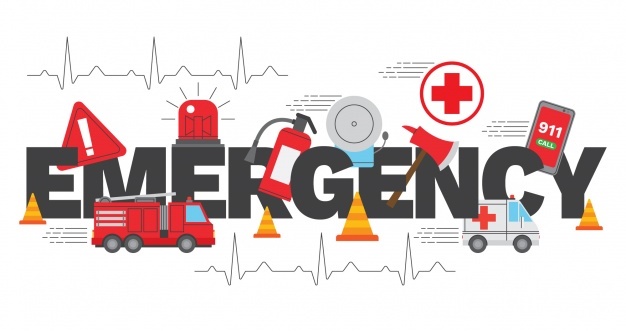Health Insurance

Health insurance covers medical or hospital expenses if you get sick, have an accident or need an operation. Ireland’s Public Health Insurance System
The best part about using the local health insurance system in Ireland is that it is affordable and, in general, offers excellent care. It’s hard to argue with that combination! Ireland offers one of the highest standards of public healthcare in the world and it offers good value to users.
However, patients requiring non-urgent care often have to wait to receive it. Ireland’s waiting lists to see specialists are long and only growing longer. As well, if you live in a rural area and require special care, you may need to travel to a city hospital to receive the treatment you need. Sometimes those appointments come up without much notice and making arrangements to attend is disruptive.
The first thing to do when you start living in Ireland is to register with General Practitioner (GP). This is the first line of contact regarding your medical services. If you get sick, call your GP and make an appointment. You will be asked to pay the GP consultation fees, your GP will then give you medication or refer you to a specialist, hospital, or even for a scan.
If the GP decided to refer you to a specialist, he may ask you if you would refer you to public or private service. Here comes the role of private insurance. The waiting list for public service for certain referrals might be years, and for the same thing using private service for a few months
Children under six years old are covered under what o called GP visit card, this card makes you Child’s GP visit free.
Do you have to buy private health insurance in Ireland?
Short Answer No.
Private health insurance in Ireland is optional. If you are ordinarily resident in Ireland, you are entitled to receive public in-patient and out-patient hospital services. This means that you do not have to take out private health insurance to access hospital services. If you do not buy private health insurance, you are entitled to services in the public hospital system on the basis of clinical need.
If you have a baby and are not covered for maternity services under private health insurance, you will still be able to access maternity care through the public healthcare system. All expectant mothers who are ordinarily resident in the State are entitled to free maternity care.
This includes antenatal visits, labour and delivery, and postnatal care.
Even if you have private health insurance you can still access public health services. Similarly, if admitted to hospital, you will need to tell the hospital whether you want to be admitted as a public or a private patient.
What are the main benefits of private health insurance?

- Cover for hospital accommodation in a private or shared room
- Cover for inpatient consultant services as a private patient
- Private health insurance can significantly cut down on wait times. It also eliminates the need to always be on standby for a cancellation spot. As well, private health insurance offers treatment in facilities which are more comfortable and more private.
- Other covers including overseas which is very highly to consider in vacation or visiting your home country if you are expats, psychiatric and outpatient benefits
- Tax relief, the Health Insurance Tax Credit reduces the amount of the health insurance premium that you pay.
- From the 6 March 2019, the Stamp 1G will also provide for the change in policy to both visa and non-visa required non-EEA nationals, who are Spouses and de facto partners of persons who are currently resident in this State, on Stamp 3 conditions, as the family member of a person resident in the State on the basis of a Critical Skills Employment Permit or a Researcher in the State on a Hosting Agreement provided that they have their private health insurance.
- Which intitule you for the following benefits:
- Permitted to work in the State without the requirement to obtain a work permit
- Renewal of the Stamp 1G registration should be applied for annually, and after 5years on a Stamp 1G, you may apply for a Stamp 4
- Periods spent on Stamp 1G are considered as reckonable residence for the purpose of making an application for Citizenship/Naturalization.
What is the waiting period?

When you take out health insurance for the first time, you may have to serve waiting periods before you are fully covered. However, accident and injury will be covered immediately.
The maximum initial waiting period is 26 weeks. For maternity-related claims, the waiting period is 52 weeks.
The health insurance company may refuse to cover you with respect to pre-existing conditions for longer periods after you join. So, for example, if you have diabetes, the insurance company may refuse to provide you with any cover for diabetes for a specified period but must cover you for any other illnesses once the initial waiting period has expired.
For policies taken out since 1 May 2015, the maximum waiting period for pre-existing conditions is 5 years.
Any waiting period for a pre-existing condition may switch from one Irish insurer to another. If the switch takes place within 13 weeks, the completed waiting periods will not have to be served again. Therefore, you can normally move from one Irish insurer to another without loss of cover.
For contracts taken out before 1 May 2015, longer waiting periods for pre-existing conditions could be applied to people aged 55–59 (maximum 7 years) or aged over 60 (a maximum of 10 years).
If you are switching health insurance plans, a maximum waiting period may be applied to any higher benefit on the new plan.
For contracts taken out since 1 May 2015, the maximum waiting period is 2 years (for contracts before that date a longer waiting period of 5 years could be applied to people aged over 65).
However, a health insurer may waive the waiting period at their discretion, because the law imposes a maximum on waiting periods that an insurer may require, but no minimum. Some insurers routinely waive waiting periods if you have previously held health insurance in Ireland or if you were covered by certain types of health insurance while abroad.
What is Community rating?

“Community rating” means that the insurance company must charge the same rate for a given level of service, regardless of age, sex, or health status. So all adults pay the same amount for the same benefits. Unlike motor insurance or life insurance, matters such as age, sex, sexual orientation, health, or past record of claims do not affect the price charged for insurance.
Charges may be lower than the normal adult rate for: people aged under 25; retired people who have a special arrangement within their company’s health insurance scheme and people in group health insurance schemes. Charges for children must be reduced by at least 50%.

Lifetime community rating
With the introduction of “ Lifetime Community Rating,” you need to enter the health insurance market before the age of 35 to avoid an extra premium known as loading. As and from 1 May 2015 a loading of 2% on premiums applies to anyone aged 35 who takes out insurance for the first time. A further 2% loading applies for every year after that. For example, if you take out a private health insurance policy for the first time at age 40 you will pay an additional 12% on your annual premium every year. However, there are allowances if you previously had health insurance as this would be taken into account if you have proof of cover from your previous provider.
If you have a break in cover of less than 13 weeks this will not affect your loading.
If you stopped your insurance cover for periods of unemployment since 1 January 2008, up to three years of credits can be provided.
If you live outside Ireland and move to Ireland, loading will not apply if you get health insurance within nine months and continue to be insured.
Types of health insurance
There are two basic types of private health insurance cover.
- In-patient hospital cover – this pays for services you receive if you are admitted to hospital, whether you stay the night or are treated as a day-patient. It covers some or all of the cost of treatment by your doctor and costs associated with hospital accommodation, tests, and surgery.
- Outpatient or primary cover – this covers the treatment you receive from a health services provider when you aren’t admitted to hospital. It includes treatment in a consultant’s room, in the accident and emergency room of a hospital, or from a GP, physiotherapist, or specialist.
You can take out both in-patient hospital cover and outpatient cover separately. Health insurer’s offer packaged policies that provide cover for both services. Some plans may have limited or no outpatient cover. Plans with limited outpatient cover usually only cover part of your expenses. This part of the expense is often referred to as the ‘allowable expense’.
Example one: a GP visit may cost €50 but the allowable expense may be only €15. Others include not only the cost of seeing your doctor, dentist or physiotherapist but also alternative treatments such as acupuncture, chiropody or osteopathy. Some plans may also have an excess, which must be reached before you can make a claim.
Example two: the policy may state that they will refund 50% of GP expenses but this may only be on the condition that you pay anexcess of €400 for out-patient expenses.
Hospital cover also varies with some plans providing cover for a semi-private room in a public hospital, whereas others will pay for a private room in a private hospital.
Get the right cover?

As well as offering different benefits, the packages on offer from health insurance providers vary in cost. So, it makes sense to get quotes from each provider and compare the benefits on offer to see what suits you best.
You can find out more information on the different health insurance packages and costs from health insurance providers in Ireland from the Health Insurance Authority. Consider the following:
What level and type of cover are you looking for?
Do you just want basic cover or are you prepared to pay more for treatment in a private hospital?
What mix of in-patient and out-patient cover best suits your needs?
Which product is best suited to your stage of life? Younger people starting out may want cover for activities such as sports, physiotherapy, or travel, in addition to the basics. Those planning a family may be interested in maternity benefits, with some packages better suited to families than others.
What services are available in participating hospitals in your local area?
How do different products compare on cost?
Are you looking for insurance for yourself or for your family, including any children?
Even if you choose to include cover for private hospital accommodation as part of your plan, you should be aware that there is no guarantee of availability (of private beds) in the hospital.
You should always be aware of the conditions of your cover and any restrictions that apply.
Before signing up to a policy, ask yourself:
Does it cover all treatments I may need? Some policies may not cover dental treatments, out-patient treatments, or experimental treatments. If you need cover for medical treatment abroad – make sure this is included.
Do I understand all the details of the policy? Read all of the small print. If you do not understand something, you should ask for an explanation.
Do I have to serve a waiting period for a pre-existing condition? While that waiting period applies, you are not covered for private treatment for pre-existing conditions.
Who provides health insurance?
Within Ireland, there is limited competition among private.
Only four companies offer private health insurance.
Private insurance is regulated by the Health Insurance Authority’s (HIA). Purchasing a global health insurance plan before you move gives you greater flexibility and value than having to choose among the four main companies within Ireland.
Review your health insurance
You should review your health insurance cover at least once a year when you receive your renewal notice. You may be able to make significant savings by changing your level of cover or by looking for quotes from other health insurance providers.
You can switch health insurance providers during the term of your policy. However, depending on your insurer, there may be charges for doing this, so you should always check before you switch.
Switching – what to look out for
If you switch, your new insurer may impose waiting periods for any extra benefits available on your new plan. Your old insurer may also insist on you paying the government health insurance levy upfront if you switch mid-term.
Reasons why you might want to change your health insurance
There are a number of reasons why you might want to review your cover. These may include:
- Changes in your life or plans for the future, e.g. you may have had children or be planning on having a child
- You need extra precautions against unexpected ill health
- Your health has changed, and your existing plan no longer covers you
- You are over-insured and could save money by reducing your level of cover
- You want better value cover
How can you save money?

You could potentially save money by:
- Opting for a cheaper corporate plan that offers similar benefits – these are not marketed to the public, but insurance companies may offer them to consumers if asked
- Putting your children on a different plan to yourself
- Getting quotes from different providers
- Paying an excesson any claim you make
- Downgrading your cover to save money. If you decide to downgrade, you need to consider whether the savings are worth any loss in cover and think about whether a lower level of cover suits your needs. You should be aware that if you decide to upgrade your cover in the future, waiting periods of up to a maximum of two years can apply for all ages. During the waiting period, you will not be able to make a claim for extra benefits on your new plan.
How much does it cost or how much will I save?
Any costs or savings will depend on your new level of cover. There is a useful comparison on the HIA’s website where you can compare the cost of plans from different insurers for similar benefits.
What do I need to do when switching providers?

If you are switching providers, take the time to read your new policy documents carefully and if you have any questions on your cover, contact your provider. If you are switching to a different insurance provider, you will need to cancel the direct debit to your old insurer. To stop a direct debit, you must cancel it by writing to your bank. You should also contact the third-party supplier – in this case, your old insurance provider – to make sure that the direct debit has been canceled. If you change your mind after switching, all insurers must provide a 14-day cooling-off period from the start of the contract, during which time you may cancel and get a full refund.
References:
https://www.hia.ie/health-insurance-comparison
https://www.ccpc.ie/consumers/money/insurance/health-insurance/
https://www.citizensinformation.ie/en/health/health_system/private_health_insurance.html
http://www.inis.gov.ie/en/INIS/Pages/registration-stamps










